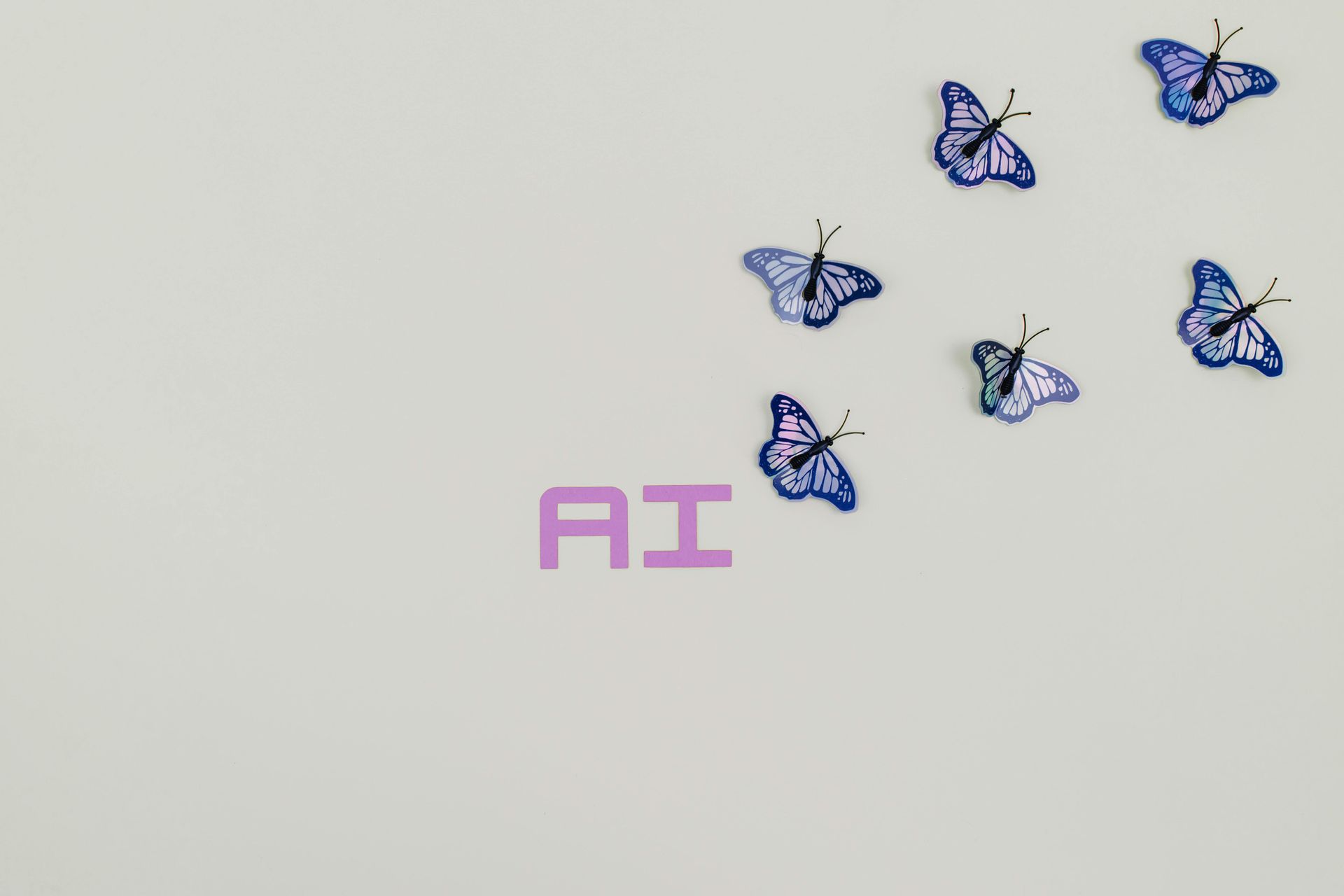AI Governance Guide
As Artificial Intelligence (AI) becomes increasingly integral to organisational operations, the need for robust AI governance has never been more critical. AI governance refers to the frameworks, practices, and guidelines that ensure AI systems are developed and used ethically, transparently, and responsibly.

For businesses venturing into AI, here's a comprehensive guide to establishing effective AI governance:
1. Establish Clear Policies and Principles
- Develop a set of AI ethics principles that align with your organisation's values and mission.
- Create policies that guide the development, deployment, and use of AI systems.
- Ensure these policies address issues like data privacy, fairness, transparency, and accountability.
2. Form an AI Ethics Committee
- Assemble a diverse team to oversee AI initiatives and ensure they align with your ethical guidelines.
- Include representatives from various departments, as well as external experts if possible.
- This committee should review AI projects, address ethical concerns, and update policies as needed.
3. Ensure Transparency
- Document the purpose, functionality, and decision-making processes of your AI systems.
- Be prepared to explain how AI-driven decisions are made to stakeholders, including staff, beneficiaries, or customers.
- Implement mechanisms for AI systems to provide explanations for their outputs or decisions.
4. Prioritise Data Governance
- Establish robust data management practices, including data collection, storage, and usage policies.
- Ensure compliance with data protection regulations like GDPR.
- Regularly audit your data to ensure its quality, relevance, and ethical use.
5. Implement Fairness and Bias Mitigation Measures
- Regularly test AI systems for bias, particularly regarding protected characteristics like race, gender, or age.
- Develop strategies to mitigate identified biases.
- Ensure diversity in your AI development teams to bring varied perspectives to the process.
6. Establish Accountability Mechanisms
- Clearly define roles and responsibilities for AI development and deployment.
- Implement audit trails to track decisions made by or with the assistance of AI systems.
- Create channels for stakeholders to question or appeal AI-driven decisions.
7. Prioritise Security
- Implement robust cybersecurity measures to protect AI systems and the data they use.
- Regularly assess and address potential vulnerabilities.
- Develop incident response plans for potential AI-related security breaches.
8. Ensure Human Oversight
- Maintain human oversight of AI systems, especially for critical decisions.
- Clearly define when and how human intervention should occur in AI-driven processes.
- Provide training to staff on working alongside AI systems.
9. Foster AI Literacy
- Provide AI education and training for staff at all levels of the organisation.
- Ensure decision-makers understand the capabilities and limitations of AI systems.
- Promote a culture of continuous learning about AI developments and their implications.
10. Engage with Stakeholders
- Communicate openly with stakeholders about your use of AI.
- Seek input from those affected by your AI systems, including staff, beneficiaries, or customers.
- Be responsive to concerns and feedback about AI use.
11. Stay Informed and Adaptable
- Keep abreast of developments in AI technology and governance best practices.
- Regularly review and update your AI governance framework.
- Be prepared to adapt your practices as AI technology evolves and new challenges emerge.
12. Consider Environmental Impact
- Assess the environmental impact of your AI systems, particularly in terms of energy consumption.
- Explore ways to make your AI use more sustainable.
13. Plan for the Long Term
- Consider the long-term implications of your AI systems on your organisation and stakeholders.
- Develop strategies for maintaining and updating AI systems over time.
- Plan for potential AI-driven changes to roles and processes within your organisation.
Implementing robust AI governance is not a one-time effort, but an ongoing process that requires continuous attention and adaptation. It's about creating a culture of responsible AI use that permeates every level of your organisation.
Remember, good AI governance isn't just about mitigating risks—it's also about maximising the benefits of AI while maintaining trust with your stakeholders. By implementing strong governance practices, you can ensure that your AI initiatives align with your organisation's values and mission, ultimately leading to more successful and sustainable AI adoption.
For businesses, it can provide a competitive advantage by building trust with customers and demonstrating responsible business practices.
As you embark on your AI journey, don't let governance be an afterthought. Integrate these principles from the start, and you'll be well-positioned to leverage AI effectively and ethically.
Need help developing your AI governance framework? AltiaAI offers expert guidance tailored to the unique needs of your business. Contact us today for a free AI clinic to discuss how we can help you implement responsible AI practices in your organisation.









